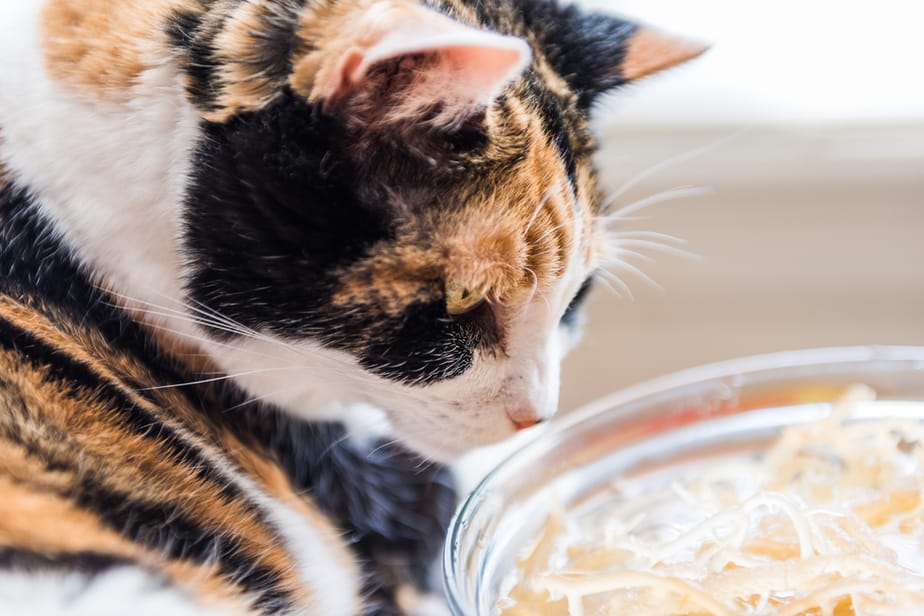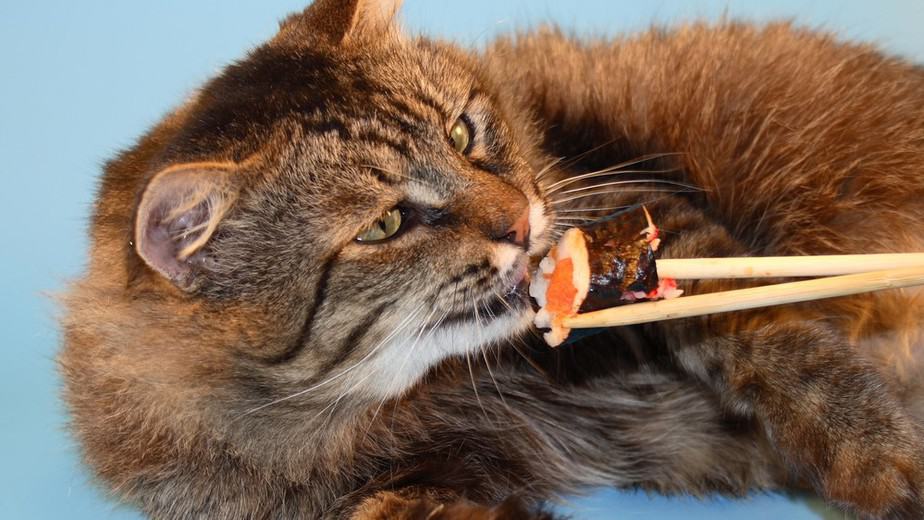📖 Table of Content:
Seaweed can be a bit of a mixed bag. It appeals to some people while others detest it. I’m sure we all know someone who would appreciate some of it. If you have a pet who likes discovering new foods, you may be wondering: Can cats eat seaweed?
Before giving new food to your cat, the best thing to do would be to consult a veterinarian or pet nutritionist. But until you do so, here’s some basic information to help cat owners learn more about feeding seaweed to their furbabies.
Can cats eat seaweed safely?
It’s difficult to determine whether your furball will be in love with seaweed because cats are notorious for being picky eaters. We know they’re obligate carnivores, meaning they can’t live without meat.
As a result, seaweed doesn’t rank as a primary source of nutrition. Consider this: You’ve never seen a wild cat chewing on some seagrass, have you?
However, the good news is that seaweed isn’t toxic to felines. In fact, seaweed can offer a couple of health benefits to your furry friend. So, even if your pet is an oddball and decides to munch some of your seaweed, don’t worry!
It’s just difficult to say whether your pet will be interested in sampling this weird-looking food. But cats are naturally curious creatures, so your little guzzler might want to investigate further.
If you wish to include some seaweed in her diet, start with a small amount at first.
Can cats benefit from eating seaweed?
Seaweed contains prebiotics such as carrageenans, agars, and fucoidans, which are non-digestible fibers that feed the good bacteria in your cat’s digestive tract.
Sugars present in seaweed aid in the growth of beneficial bacteria and the production of short-chain fatty acids, which maintain the gut lining.
These prebiotics help cats with digestion, nutrient absorption, and immune system function. The antioxidants found in seaweed may also aid in improving blood sugar control and lowering the risk of developing type 2 diabetes.
Seaweed may help to boost your cat’s immune system, too, enabling her body to fight off and protect against disease. Including seaweed in your pet’s diet may help to lower the risk of developing certain cancers.
Packed with the good stuff
Seaweed’s high vitamin and mineral content compensate for the lack of a pleasant aroma. Nutritional supplements are more important than how food smells, and seaweed is a prime example of this.
This unusual food is high in vitamin C. Felines synthesize this vitamin in their liver, but a supplement could be beneficial. Vitamin C aids in a variety of bodily functions, including the production of collagen.
Collagen is a protein that plays an important role in the formation of bones and cartilage. However, animal-derived proteins, such as those found in plainly cooked chicken wings, are a better source of protein for cats.
Seaweed is also high in B vitamins, which are used to build your pet’s body. They aid in a variety of bodily functions, including metabolism and the formation of red blood cells. These are also the reason your cat’s skin is so soft and supple.
And if you’ve ever wondered how your cat gets to be so strong and muscular, magnesium is the answer. This mineral found in seaweed aids in muscle development and blood pressure regulation.
Calcium is also essential in the bodies of both you and your pet. It is necessary for bone growth and development, as well as for the prevention of bone fractures.
Iron aids in the formation of red blood cells, which transport oxygen throughout the body. Your cat remains focused and energetic thanks to this mineral.
Concerns of cats eating seaweed
Buy plain seaweed for your cat rather than seaweed that has been processed into snacks or chips that are seasoned. To begin with, offer her a small amount of seaweed. You could chop some up and mix it in with her regular food.
Can cats eat seaweed as a full meal? It’s not recommended. Keep in mind that seaweed can be used as a supplement or a treat for your cat, but it shouldn’t be the mainstay of any cat’s daily diet.
Since seaweed is filled with iodine, it’s also worth noting that cats can be highly sensitive to it. Besides, felines are prone to an overactive thyroid (hyperthyroidism), a condition in which their thyroids produce an excess of hormones that can lead to a variety of health problems.
If your furbaby already suffers from hyperthyroidism and is on an iodine-restricted diet, it’s best to avoid feeding her seaweed.
In conclusion
Cat parents are always full of questions, but can cats eat seaweed is probably not the most popular one. However, it’s always good to know what you’re dealing with, especially because those nine lives are just a myth.
Cats can eat cooked seaweed without additional seasonings, as these can negatively impact your cat’s health – some spices can even be toxic.
Remember to only give seaweed as an occasional treat, and in small portions. That’s if your floof will even like it!
Related post: Can Cats Eat Sushi? Feline Delicacy Or Danger?



